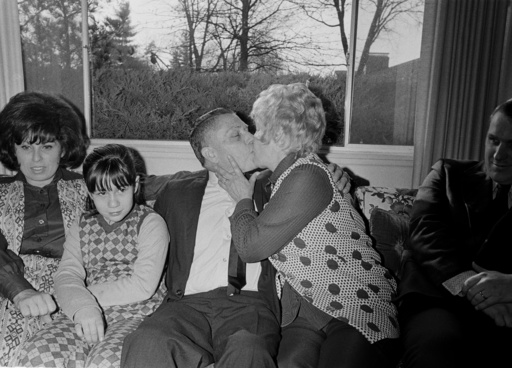DETROIT — In September 2012, a quiet neighborhood just outside of Detroit became the center of attention as police taped off the area around a shed while residents speculated about the search. Murmurs grew into animated discussions when the name Jimmy Hoffa was mentioned. In Detroit, the notorious Teamsters union leader’s name has taken on almost mythical status.
Marking half a century since Hoffa vanished from a restaurant approximately 10 miles north of Detroit today, his story remains unsolved. Declared legally dead in 1982, his body was not found under the shed’s concrete floor in Roseville back in 2012. Earlier searches, such as one in a Detroit house in 2004, also failed to uncover his remains. Another search in 2013 at a horse farm northwest of the city turned up nothing, and efforts underneath the Pulaski Skyway in New Jersey in 2022 similarly ended without success.
Hoffa, whose beginnings trace back to Indiana, was the son of a coal miner who passed away when Hoffa was only seven. His family relocated to Detroit, where he left school at fourteen to work on a grocery warehouse loading dock. In 1932, he led a strike against unfair labor practices, a pivotal moment that set his path into union work by joining the International Brotherhood of Teamsters a year later. He quickly rose to become a business agent for Local 299, indicating a natural inclination toward leadership.
Elected president of his local union in 1937, Hoffa became a prominent union organizer. However, his journey was fraught with legal issues, beginning in 1937 with an assault conviction, and followed by other charges related to union activities. Each legal run-in generally resulted in fines. From 1957 to 1971, Hoffa served as the Teamsters’ general president, during which time his associations with organized crime deepened. Convicted of fraud, conspiracy, and jury tampering in the late 1960s, he served prison time until President Nixon commuted his sentence in 1971.
On July 30, 1975, Hoffa, then aged 62, vanished before a meeting with reputed mob figures at the Machus Red Fox restaurant in Oakland County’s Bloomfield Township. His last known contact was a call to his wife from a restaurant pay phone, reporting that his associates were no-shows. Despite a plethora of tips and state-spanning searches, Hoffa’s fate remains a mystery. A grand jury convened in Detroit did not result in charges tied to his disappearance, preserving the case as one of the FBI’s most famous unsolved cases.
The FBI’s Detroit office recently acknowledged the ongoing nature of the investigation, emphasizing their commitment to pursuing credible leads and urging anyone with information to assist.
“Whomever is responsible went to great lengths to keep such information hidden,” said Wayne State University’s Professor Emeritus Marick Masters. Hoffa, on the brink of re-entering Teamsters’ leadership when he disappeared, remains an enigmatic figure—a revered labor champion with complex, controversial ties.
Inducted into Labor’s International Hall of Fame in 1999, Hoffa is portrayed by the International Brotherhood of Teamsters as a “worker’s hero.” Yet, as Masters noted, Hoffa’s associations with organized crime stained his legacy, making him a figure capable of both inspiring allegiance and raising suspect questions about his ethical conduct.


